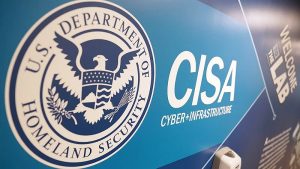The city of St. Paul, Minn., is continuing to respond to a significant cyberattack impacting access to some internal systems and online services, with the help of the Minnesota National Guard.
The Department of Homeland Security (DHS) said on August 1 that it is offering $103.8 million of grant funding to state, local, and tribal governments to “strengthen community cybersecurity.”
Nevada officially launched the state’s Office of Information Security & Cyber Defense (OISCD) on July 1 and appointed Adam Miller as its inaugural deputy director.
New York Gov. Kathy Hochul on Friday signed into law S.7672A/A.6769A, which aims to enhance the cybersecurity of state and local government networks across the state.
The state of Oklahoma is on the hunt for its next chief information security officer (CISO), according to a job posting issued last week by the Office of Management and Enterprise Services (OMES).
Texas Gov. Greg Abbott signed legislation on June 3 to create the Texas Cyber Command, which the governor’s office billed as the largest state-run cybersecurity department in the United States.
In response to the growing cybersecurity threats facing America’s public schools, the Institute for Security and Technology (IST) has launched the K–12 Cyber Defense Coalition (K12 CDC) – a new national partnership made up of 13 education organizations working to protect schools from cyberattacks and improve response strategies.
Tennessee’s Memphis-Shelby County Schools is the latest to file a Federal lawsuit against edtech provider PowerSchool for alleged negligence tied to a massive data breach, joining more than 100 districts across the country in seeking accountability.
The Cybersecurity and Infrastructure Security Agency (CISA), Department of Homeland Security’s (DHS) Science and Technology Directorate (S&T), and the Idaho National Laboratory (INL) recently hosted Louisiana State University (LSU) and industry partners at CISA’s Control Environment Laboratory Resource (CELR) for a cybersecurity training exercise.
As generative AI capabilities reshape cloud technologies, GovRAMP has launched a new AI Security Task Force aimed at strengthening cybersecurity and trust standards for AI-powered cloud solutions used by public sector organizations.













